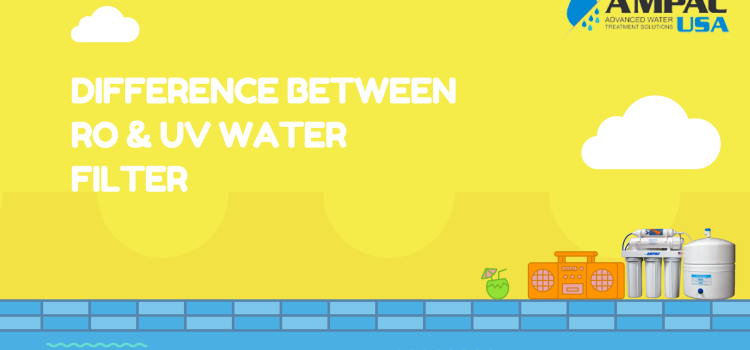After years of changes to the water filtration system, at present, there are two processes that are in the limelight. RO and UV filtration. A majority of the crowd is divided in deciding which purifier to choose, a reverse osmosis operated water filter or an ultra violet filter. But to be able to make such a decision we usually list down the pros and cons of these filters and choose the one with most pros. If you are someone without enough knowledge on the subject.
Here is a detailed description of the difference between an average RO and UV filter-
- Technology:
To start with, RO uses reverse osmosis technology where water is pushed through a semi permeable membrane and pure water comes out on the other side.
In UV, Ultra violet rays are passed through the water in order to eliminate germs and other living organisms. - Filtration
In an RO filter, the membrane takes care of the chemicals, sediments, TDS, and microorganisms bigger than the membrane pores. However, the possibility of bacteria to get through it is there. In UV filtration process, the system is able to kill all bacteria and germs, however, remains ineffective against sediments, TDS, and chemicals. - Cost of maintenance:
An RO filter is efficient and easy on the pockets, apart from periodic membrane checks and replacement, no other major cost is incurred. In UV however, the lamp has to be replaced annually as there is no guarantee that it will remain as effective as before. UV lamps are a bit costly too. - Power consumption:
The energy requirement of both the systems are not much but UV does require less amount of power than an RO filter. The consumption depends on the product model and varies according to the brand too. - Capacity:
An RO filter is effective for a family size between 1-5. Whereas the UV filter will be efficient in use if the family size is an ideal 5 members one.








